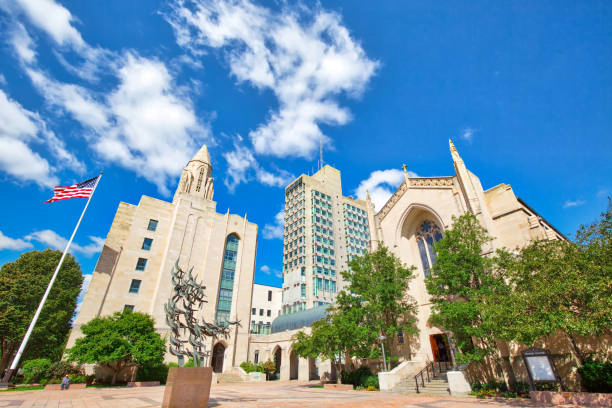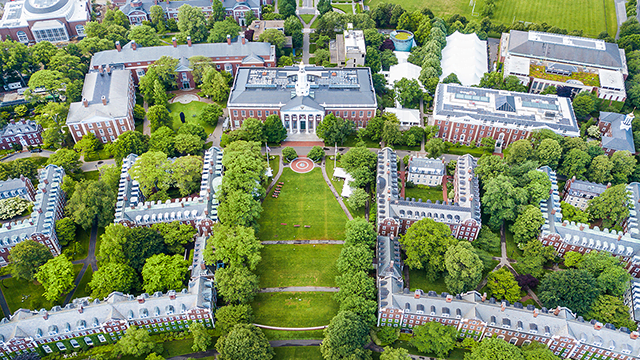Table of Contents
Introduction
Education is a passport to the future, and choosing the right place for it is a decision that shapes one’s trajectory in profound ways. Amid the myriad options available, Boston emerges as an educational mecca that offers a transformative journey, unparalleled opportunities, and an unwavering commitment to academic brilliance. In this discourse, we delve into why Boston stands as the ultimate destination for education, exploring its distinctive attributes, high educational value, and the world’s reverence for its academic offerings. Through the lens of prominent individuals who have emerged from its hallowed halls, we showcase the city’s ability to nurture greatness and catalyze success. Buckle up as we navigate through the corridors of excellence, uncovering the reasons behind Boston’s educational supremacy.

The Boston Advantage: Unraveling Excellence
Why should one choose Boston for education? The answer lies in the city’s mosaic of unparalleled features that converge to provide an unparalleled educational experience.
The heart of Boston beats with academic excellence, housing renowned institutions such as Harvard University, Massachusetts Institute of Technology (MIT), Boston University, and more. These institutions stand as citadels of knowledge, harboring distinguished faculties and cutting-edge research facilities that nurture the minds of tomorrow’s leaders. Boston’s diverse array of programs spanning STEM fields, liberal arts, business, and social sciences ensures that every student finds their niche to flourish.
Embracing Boston means embracing innovation. The city thrives as a hub for technological breakthroughs and entrepreneurial ventures. Close ties to startups, research centers, and global companies offer students the chance to convert classroom knowledge into real-world impact. A student studying robotics at MIT might find themselves at the forefront of a groundbreaking development in the robotics industry.
A higher education cost leads to a higher educational value
Education is an investment, and Boston offers a remarkable return. The city’s institutions are not just teaching grounds; they are crucibles of opportunity and growth. Boston’s vaunted networking opportunities weave a tapestry of connections that extend beyond the classroom. Collaborating with like-minded peers and industry professionals fosters a culture of intellectual curiosity and innovation. Aspiring entrepreneurs can attend hackathons and student clubs to realize their visions, guided by a supportive community.
But what truly sets Boston apart is its commitment to research. Students are not mere recipients of knowledge; they actively engage in shaping it. State-of-the-art facilities and research centers enable students to dive deep into their fields, conducting experiments and driving discoveries. Imagine working on groundbreaking biomedical research that could revolutionize healthcare, all within the confines of Boston’s world-class institutions.
Inside Harvard University's Campus
Credit of the video goes to Harvard University’s Youtube Channel
Best Universities in Boston
Harvard University:
World Rank: Varies, but consistently among the top-ranked universities globally.
Description: Harvard is one of the most renowned universities in the world. It offers a wide range of undergraduate, graduate, and professional programs across various fields. The university is known for its rigorous academics, distinguished faculty, and extensive resources.
Massachusetts Institute of Technology (MIT):
World Rank: Varies, but consistently among the top-ranked universities globally.
Description: MIT is a leader in science, engineering, and technology education. It’s known for its cutting-edge research and innovation, spanning areas like robotics, computer science, artificial intelligence, and more.
Boston University:
World Rank: Varies, usually within the top 100.
Description: Boston University offers a wide range of programs and is known for its research contributions in various fields. It has a strong emphasis on interdisciplinary collaboration and is located in the heart of the city.
Tufts University:
World Rank: Varies, usually within the top 200.
Description: Tufts is a research university with a focus on liberal arts education. It’s known for its strong programs in international relations, health sciences, and various other disciplines.
Northeastern University:
World Rank: Varies, usually within the top 200.
Description: Northeastern is known for its co-op (cooperative education) program, which integrates classroom learning with professional experience. The university has a strong emphasis on experiential learning and research.
In summary, the high costs associated with studying and living in Boston create a sophisticated and intellectually charged atmosphere. The crowd that assembles in these universities is a result of a selective admissions process and the understanding of the investment’s value. While the financial considerations and competitive nature may seem challenging, they contribute to an environment that is filled with high-achieving individuals who are both academically and financially conscious, making Boston an ideal destination for those seeking a rigorous and rewarding educational experience.

The Crowd of Boston
Boston’s reputation as a hub of top-ranked universities comes with both an air of sophistication and a high price tag. While the educational and residential costs can be steep, they contribute to creating an intellectual atmosphere that is unparalleled. The universities in Boston draw in a crowd that is not only academically accomplished but also attuned to the value of education and the opportunities it can bring.
Factors which effect the crowd of Boston
The high costs associated with living and studying in Boston naturally lead to a crowd that is financially well-aware and mature. Students who choose to pursue their education in this environment are often making a calculated investment in their future. They understand the significance of their education and the long-term benefits it can offer, which can foster a culture of seriousness and dedication.
The competitive nature of Boston’s universities, with their low acceptance rates, adds another layer to the crowd. Those who successfully secure admission have proven their academic prowess, ambition, and dedication. This selectivity cultivates an environment where students are surrounded by peers who are equally driven and high-achieving, fostering a culture of healthy competition and collaboration.
The crowd's effect on YOU
The high-achieving crowd in Boston universities comprises individuals who are not just academically accomplished but also often well-rounded. These students are likely involved in various extracurricular activities, internships, and community engagement initiatives. This dynamic engagement contributes to a diverse and vibrant campus culture.
While the high costs might seem daunting, they serve as a filter, attracting individuals who are highly motivated and understand the value of their investment. This, in turn, shapes a crowd that is not just intellectually stimulating but also financially conscious, aware of their career prospects, and eager to maximize the opportunities at their disposal.
Furthermore, the presence of “superhuman” individuals, can act as a source of inspiration and motivation. Being surrounded by peers who are exceptionally talented and driven can push students to strive for excellence and constantly seek growth. Rather than them pushing you, you would feel very energetic all the time to work harder and either cope up or surpass the people around you in success and intellectualness.
Frequently Asked Questions: Navigating the Decision
Boston's education is often perceived as expensive due to factors like the prestige and quality of its universities, renowned faculty, cutting-edge research facilities, and extensive resources. The city's role as a hub for research and innovation also contributes to higher tuition fees. Faculty expertise and the demand for a Boston education further impact costs. Additionally, the high cost of living in the metropolitan area, coupled with investments in city infrastructure and student services, adds to expenses. Despite the high cost, many view a Boston education as a valuable investment, offering potential returns in terms of career opportunities, networking, and personal growth. Financial aid and scholarships are available to mitigate costs for some students, yet the overall expense remains notable due to the city's reputation, academic offerings, and the advantages it presents to graduates. While Boston's education comes with a price tag, it's an investment in a future rich with opportunities. The value of the education, the networking opportunities, and the doors it opens are well worth the cost.
Boston's universities offer a diverse array of programs that provide students with the flexibility to explore their interests and discover their passions, even if they're not entirely sure about their chosen field. The city's intellectual and academic environment creates a conducive atmosphere for such exploration, guiding students toward finding their true calling.
The presence of prestigious institutions like Harvard, MIT, and Boston University means that students have access to a wide range of disciplines and fields of study. This diversity allows individuals to explore different subjects and disciplines before committing to a specific major. For instance, if a student enters college with a general interest in science but is uncertain about whether to pursue physics, biology, or chemistry, Boston's universities offer introductory courses that expose them to various scientific domains.
Moreover, Boston's collaborative and interdisciplinary approach to education encourages students to combine subjects and cross boundaries. This is particularly beneficial for students who have broad interests or want to explore the intersections of different fields. For example, a student passionate about both technology and the arts might have the opportunity to merge computer science with digital design at universities like Northeastern or Tufts.
Boston offers diverse opportunities for students after graduation. The city's thriving job market spans technology, finance, healthcare, and more, connecting graduates to established firms, startups, and research institutions. Networking prospects are abundant due to the city's numerous universities and industries, with industry events and conferences fostering connections. The dynamic startup ecosystem encourages graduates to launch their ventures or work for innovative startups. Boston's research and innovation focus enables graduates to contribute to groundbreaking projects in collaboration with esteemed institutions like Harvard and MIT.
Continuing education options are plentiful, allowing graduates to pursue advanced degrees or specialized training. The city's rich cultural scene offers museums, theaters, and live music venues, while professional development opportunities enhance graduates' skill sets. Healthcare and medical research avenues are prominent, thanks to the city's reputable institutions. Volunteering and community engagement foster personal growth and networking.
Boston's diverse population fosters cultural exchange, while its proximity to nature allows graduates to enjoy outdoor activities. The city's walkability and efficient public transportation facilitate easy commuting. Mentorship from experienced professionals aids graduates in career decisions. In essence, Boston empowers graduates with a multifaceted landscape encompassing job prospects, networking avenues, research opportunities, and cultural enrichment.
No, Boston offers a holistic experience. Its rich history, cultural diversity, and vibrant arts scene mean that you'll have ample opportunities for personal growth, cultural enrichment, and recreation.
Boston is a vibrant and diverse city with a lot to offer to students beyond academics. Here are some of the exposures and experiences students can have in Boston:
1. Cultural Scene: Boston has a rich cultural scene with numerous museums, galleries, theaters, and performance venues. Students can explore the Museum of Fine Arts, the Institute of Contemporary Art, and catch Broadway-level shows at theaters like the Boston Opera House.
2. Historical Sites: Boston is steeped in history and offers iconic sites like the Freedom Trail, Paul Revere's House, and the USS Constitution Museum. Students can immerse themselves in the city's revolutionary history.
3. Music and Entertainment: The city has a thriving music scene, ranging from classical music at Symphony Hall to indie bands performing in clubs. Fenway Park, the historic baseball stadium, also hosts concerts and events.
4. Sports: Boston is passionate about sports, particularly baseball (Red Sox), basketball (Celtics), and hockey (Bruins). Attending a game or even just experiencing the city's sports culture is a must for many students.
5. Culinary Delights: Boston offers diverse dining experiences, from seafood at the Quincy Market to international cuisines in neighborhoods like Chinatown. The city's food trucks and local restaurants provide a wide range of flavors.
6. Outdoor Activities: Boston has beautiful parks and outdoor spaces, such as the Boston Common and the Public Garden. Students can enjoy walking, jogging, picnicking, or simply taking in the scenery.
7. Networking Opportunities: Being in a city with many universities and industries provides students with excellent networking opportunities. They can attend conferences, workshops, and seminars, and connect with professionals in their fields.
8. Innovation and Entrepreneurship: Boston is a hub of innovation, with a strong presence of startups, tech companies, and research institutions. Students interested in entrepreneurship and innovation can attend meetups, pitch events, and workshops.
9. Festivals and Events: The city hosts a variety of festivals and events throughout the year, celebrating art, music, culture, food, and more. The Boston Marathon, Boston Calling music festival, and the Head of the Charles Regatta are just a few examples.
10. Community Engagement: Boston offers numerous opportunities for community service and volunteering. Students can get involved in local nonprofits, community projects, and initiatives that make a positive impact.
11. Waterfront Activities: Boston's waterfront offers activities like boat tours, kayaking, and whale watching. The New England Aquarium is also a popular attraction for marine enthusiasts.
12. Education Opportunities: Boston has numerous educational lectures, talks, and workshops outside of traditional academic settings. Students can attend talks by thought leaders, authors, and industry experts.
These are just a few examples of the experiences and exposures students can have in Boston beyond academics. The city's diverse and dynamic environment ensures that there's always something new to explore and engage with.
Five individuals who studied in Boston and went on to achieve great things in their respective fields:
Dr. Martin Luther King Jr.
Dr. King studied at Boston University’s School of Theology, where he earned his doctorate in systematic theology. He later became a prominent civil rights leader, known for his advocacy of nonviolent resistance and his role in advancing the civil rights movement in the United States.
Benjamin Franklin:
While not born in Boston, Benjamin Franklin spent a significant portion of his life in the city and attended Boston Latin School. He went on to become a polymath, statesman, author, inventor, and one of the Founding Fathers of the United States. His contributions include advances in science, diplomacy, and the invention of the lightning rod and bifocal glasses.
Matt Damon and Ben Affleck:
Both Matt Damon and Ben Affleck are actors and screenwriters who grew up in Cambridge, a neighboring city of Boston. They attended Harvard University, and their collaboration on the screenplay for the film “Good Will Hunting” brought them fame and recognition, winning them an Academy Award for Best Original Screenplay.
Sylvia Plath:
Renowned poet and novelist Sylvia Plath studied at Smith College in Northampton, Massachusetts, which is relatively close to Boston. Her literary contributions, including her novel “The Bell Jar” and her poetry, have had a profound impact on modern literature.
E. O. Wilson:
Edward O. Wilson, often referred to as the “father of sociobiology” and a prominent biologist, conducted his research at Harvard University. His work in the fields of ecology and evolutionary biology has significantly contributed to our understanding of social behavior and biodiversity.
Conclusion
These individuals are just a few examples of the many talented and accomplished individuals who have studied in the Boston area and made significant contributions to various fields. If Boston can provide such opportunities to themes, it does to everyone. In the heart of Boston, academic aspirations intertwine with a city that holds its own unique allure.
As you contemplate your academic journey, consider the plethora of reasons that make Boston an irresistible choice. By choosing to study in Boston, you’re not just selecting a city; you’re choosing a transformative experience that will shape your intellectual pursuits and enrich your life in ways you never imagined. Contact us for doing so


